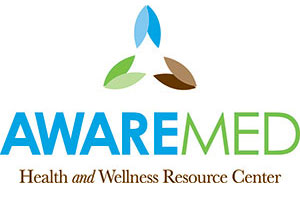Hyperemesis Gravidarum Treatment Bristol, VA

Experienced by over 50% of pregnant woman, morning sickness—characterized by nausea and vomiting in the first trimester of pregnancy—is often one of the first signs a woman is pregnant. Thought to occur due to the hormonal changes associated with pregnancy, changes in estrogen, progesterone and human chorionic gonadotropin (hCG) hormone levels are all likely to play a role, although an exact cause is still not fully understood.
For a small group of women, morning sickness can become extremely severe, resulting in intense nausea and vomiting, which can lead to weight loss and dehydration. Referred to as hyperemesis gravidarum, this medical condition can last beyond the first trimester of pregnancy and prevent women from carrying out daily activities due to its debilitating symptoms.
With the potential to cause harm to both mother and baby, hyperemesis gravidarum requires medical attention. To schedule a consultation with a qualified healthcare professional in Bristol that specializes in hyperemesis gravidarum treatment, call (423) 482-8711 or contact AWAREmed Health and Wellness Resource Center online.
Hyperemesis Gravidarum Symptoms
While extreme nausea and vomiting are the main symptoms of the condition, other indications you may be suffering from the severe morning sickness of hyperemesis gravidarum include:
- Dehydration
- Weight loss
- Fatigue
- Food aversions or appetite loss
- Dizziness or fainting
- Infrequent urination
- Blood in vomit
These symptoms generally manifest between the 4th and 6th week of your pregnancy and peak in severity around your 9th to 13th week. By the 20th week, most women with hyperemesis gravidarum report symptomatic relief; however, for some, symptoms may persist throughout the remainder of their pregnancy. In some cases, your symptoms become so severe that hospitalization is required.
Treatment Options for Hyperemesis Gravidarum
The treatment course your healthcare provider elects is dependent on the severity of your symptoms. For mild hyperemesis gravidarum, lifestyle changes and home remedies often provide adequate relief and include:
- Ginger in supplement form or through diet
- Modifying diet to eliminate spicy foods which could cause nausea, and eating smaller, more frequent meals throughout the day which are easier to digest than larger meals
- Vitamin B6
- Acupressure through the use of pressure points to reduce nausea, or by wearing acupressure or sea bands
For more severe cases of hyperemesis gravidarum, your treatment may require more immediate intervention and include:
- Intravenous (IV) fluids to rapidly restore hydration, electrolytes and vitamins (which is particularly important for women who are dehydrated)
- Tube feeding—either passed through the nose to the stomach, or the abdomen to the stomach—if you are unable to keep any food down
- Medication such as an anti-nausea, anti-reflux or antihistamine medications
It is extremely important to never take a medication without first discussing the risks with your healthcare provider who can inform you of an adverse effects which may impede the development of your baby.
Luckily, with prompt treatment, hyperemesis gravidarum will not adversely affect the health of your baby. While the symptoms can significantly disrupt your life in the short-term, nausea and vomiting typically subside well before your baby is born, making the remainder of your pregnancy more tolerable. If your morning sickness is causing you much distress, and you suspect you are suffering from hyperemesis gravidarum, meet with a healthcare provider who understands the unique health needs of both you and your baby. Call (423) 482-8711 or contact AWAREmed Health and Wellness Resource Center online to receive hyperemesis gravidarum treatment today.
AWAREmed Health and Wellness Resource Center
Address
1604 Lamons LaneSuite 202
Johnson City, TN 37604
(423) 482-8711
www.awaremed.com
Hours
Mon:
9:00 am - 5:00 pm
Tue:
9:00 am - 5:00 pm
Wed:
9:00 am - 5:00 pm
Thu:
9:00 am - 5:00 pm
Fri:
9:00 am - 5:00 pm

